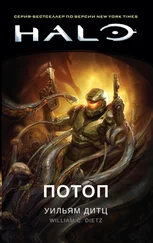More than seventy soldiers were imprisoned in underground vaults. Among them were individuals from each unit that Cox commanded, all being held to ensure the loyalty of their comrades, some of whom would have rebelled otherwise.
Once the hostages were freed, and sent into the neighboring base, Sloan figured that their comrades would surrender. Especially if they were offered amnesty, which they would be, so long as they swore allegiance to the North. It was what he believed Lincoln would do, had done, via his Proclamation of Amnesty and Reconstruction. And news of the North’s even-handedness would help prevent the Southern propaganda machine from turning Cox into some sort of a hero.
As for the gold, it was interesting to look at but held no allure for Sloan. The prize, the real prize, was to restore what had been taken. And that included the 700 million barrels of so-called black gold stored down south. A battle had been won. But the war had just begun.
CHAPTER 9

Formula for success: rise early, work hard, strike oil.
—J. PAUL GETTY
NEAR MIAMI, ARIZONA
It was just after dawn—and the sky was pewter gray. Mac was lying on her stomach on top of a ridge ten miles west of Miami, Arizona, looking down into a canyon. A light dusting of snow covered the ground surrounding the do-it-yourself oil refinery, and half a dozen vehicles were parked around the cluster of multicolored shipping containers used to house the crew.
Five weeks had passed since the mercenaries had departed Camp Navajo near Flagstaff, Arizona, and driven south to Superior. Fortunately, they’d been able to make the journey without taking casualties. Unfortunately, the temperature was only five degrees warmer than it had been in Washington State. And Mac figured conditions would soon get worse. There was no point in whining about it, though… What was, was.
As Mac panned her binoculars from left to right, she could trace the path of the muddy maintenance road that ran from one end of the canyon to the other. She knew that the dirt track followed the path of an underground pipeline that ran all the way from Canada down to Tucson. There were hundreds of such lines in the United States, and they went unnoticed unless one began to leak or caught fire.
But after the meteorites struck, and fuel became scarce, the good citizens of Miami decided to tap the pipeline and steal what they needed. The problem was that they had to refine the crude oil before they could use it. That might have put the kibosh on the idea somewhere else. But the citizens of Gila County were a resourceful bunch and had been able to construct their own refinery using tanks, pipes, and valves salvaged from local mining operations.
The process was simple though extremely hazardous. All they had to do was boil the crude and condense the resulting vapor at specified temperatures to produce what was called “straight run” gas and diesel. And that worked for a month or so.
Then a group of banditos called the 711s heard about the refinery, swept in, and took control. The locals attempted to take the refinery back, failed, and hired the newly arrived Marauders to handle the task for them. Now, after a week of planning, the attack was about to begin. “Damn it!” Ralston said. “The bastards are early!”
First Sergeant Norman Ralston was stretched out to Mac’s left. Unlike most company sergeants, he rarely swore. So the “damn it” was strong stuff coming from him. Mac turned her binoculars north and saw why Ralston was angry.
The Marauders were supposed to enter the valley from the south. Then, if the 711s were smart, they’d flee north in an effort to escape. But just before they reached the exit point, the locals were supposed to block their path with a couple of graders. And that’s when the Strykers would hit them from behind. Except that the goddamned civilians were early!
And as Mac swung her glasses back to the refinery, she saw that the banditos were boiling out of their shipping containers and taking up positions behind the ten-foot-high berm that surrounded the refinery. Sparks Munroe was lying next to her. Mac spoke out of the right side of her mouth. “Tell Strike Force Hammer to…”
But it was too late. The trucks were already nosing their way into the valley, and the Stryker crews couldn’t kill the defenders without destroying the very thing they’d been sent to recapture, and that was the refinery.
“Tell the Strykers to withdraw,” Mac said. “Then I want you to call Mr. Hanson and tell him to meet me at the FOB.”
Sparks said, “Got it,” and was still on the radio as Mac turned to Ralston. “We’ll use the drones to keep an eye on the situation—but let’s leave some observers here as well.”
Ralston nodded. “Yes, ma’am.”
The forward operating base was a temporary affair, located on a ranch six miles from the canyon. What had once been a house was little more than a pile of charred wreckage. But the forty-two-foot-by-sixty-foot metal shed was intact and being put to good use. It stood on a rise guarded by two Strykers and was surrounded by a dozen well-dug fighting positions.
As the Humvee followed the curving driveway up to the building—Mac could see that Hanson’s mud-splattered Ford pickup was already there. As she got out, the civilian hurried over to confront her. Hanson was short, stocky, and overdue for a haircut. Spittle flew from his lips when he spoke. “What the fuck is going on?” he demanded. “You ran! We want our deposit back.”
What happened next surprised Mac and the soldiers close enough to witness the incident. She was angry, and the pistol seemed to draw itself. Then, with the barrel touching the center of Hanson’s forehead, she pulled the hammer back. “Listen, asshole… Don’t ever talk to me like that again… If you do, I’ll blow your brains out. Understood?”
Hanson’s eyes were huge. He nodded.
“Good,” Mac said as she eased the hammer down. “Your people arrived early, tipped the banditos off, and blocked their exit. That left us with two options. We could destroy the refinery or withdraw… It was my understanding that option one was unacceptable. If I have that wrong, just say the word, and we’ll turn that sucker into a pool of burning sludge by lunchtime.”
Hanson’s eyes tracked the pistol as it slid back into its holster. “Sorry,” he said. “We want to recapture the refinery intact.”
“I’ve said it before, and I’ll say it again,” Mac replied. “We can seal the canyon off and starve them out.”
“Maybe,” Hanson allowed. “But that could take weeks… And we can’t afford to have you sit here for that long.”
“Okay,” Mac said as she placed a comforting arm around his shoulders. “Let’s go inside. We’ll have a couple of drinks and work on a new plan.”
That appealed to Hanson, who allowed Mac to steer him up the slope and into the metal building. What followed was a two-hour session during which Hanson had three stiff drinks, and Mac took a few sips. And by the time it was over, Operation Fourth of July had been born.
The display of fireworks began at precisely 12:01 A.M. and consisted of illumination rounds fired from an 81mm mortar located a hundred yards behind Mac’s position. Mac heard a muffled bang, followed by a short period of silence. Then came a pop as a miniature sun appeared over the canyon and fell trailing smoke as it did so. Harsh light strobed the ground and threw shifting shadows back and forth. And, because the banditos assumed that an infantry attack was under way, they opened fire.
Mac was lying on the same ridge as before, with Ralston on her left and Sparks on her right. She smiled. The more ammo the bozos burned, the better. The plan was to keep the bastards awake, scare the crap out of them, and force a bloodless surrender.
Читать дальше
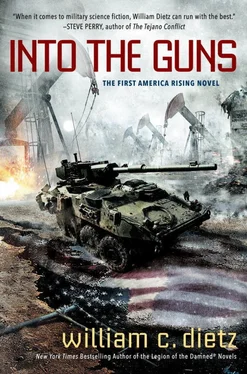

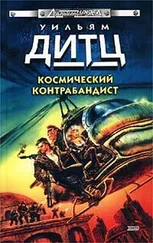
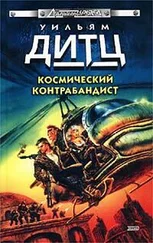
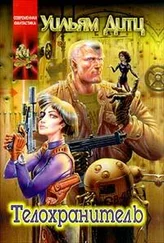
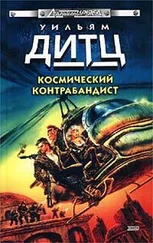
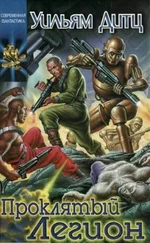
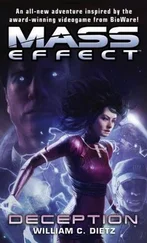

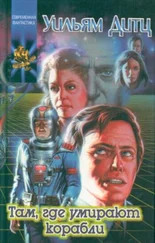
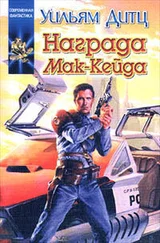
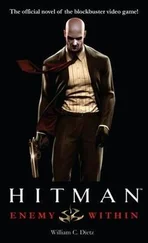
![Уильям Дитц - Избранные произведения в одном томе [Компиляция]](/books/389750/uilyam-ditc-izbrannye-proizvedeniya-v-odnom-tome-k-thumb.webp)
